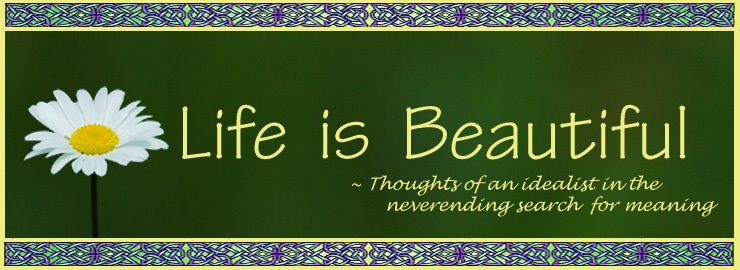I’ve decided to explore myself using Al’s map as a guide and to invite you along! I'll be posting each step of my adventure. Along the way, perhaps you will relate to my thoughts. Perhaps you’ll discover a new perspective because I’m so different from you. Perhaps I’ll even inspire you to embark on your own quest. At the very least, I hope my travels will be entertaining. :)

So here’s the plan. The map says that to get to vintage love you need to do three things:
1. Learn the following Biological Dream skills (and stop using the traditional skills learned in childhood):
a. Safety2. Heal wounds
b. Reliable membership
c. Diversity
d. Autonomy
e. Purpose
3. Share everything
So my first challenge is to learn about safety. What is Al talking about and what do I need to do?
Have you ever felt fear or pain about something that isn’t real or isn’t actually happening? Sometimes the cause of the fear is easy to find. For example, we can understand why someone would experience a fear reaction every time they smell smoke, if we know that they escaped a house fire in childhood. But why would someone feel unsafe when they smell bleach? Or experience a freezing reaction (mind goes blank, unable to think) whenever their loving, non-abusive partner uses a particular tone of voice? The human fear response can be triggered in situations where there is no actual threat to safety. In fact, some people live in this state of fear 24/7-- we call it chronic stress.
Al Turtle blames these feelings on “the lizard." Do you have a lizard in your brain? Tune in next post to find out. Let’s explore the skill of safety.
On to part 1.



14 comments:
My lizzard is one of those buggers that flares out that big hood around its neck.
I'm on board! Bring it on!!
Of course, that would be lizard with one "z".
Jason~ I love those guys! Can't wait to get to know your lizard better. :)
I fear mine may be more of the chameleon sort-- likes to be difficult to recognize.
PS: Too many blizzards flying around these parts. The typo is totally understandable.
my lizard has delusions of grandeur, thinks it's a t-rex! :O lol
Nice. Different. Thanx.
Laughingwolf~ Yikes-- your Lizard does lots of fighting and less fleeing, then?
I always had a soft spot for those dear little stegosaurs...
:)
Ronald~ Welcome to my little corner of cyberspace!
Hi, I'm just joining in!
so much to read now...
but'll be back soon!
okay, I have studied the "Map" again.
let me say this: i don't understand (or disagree with) that in 'traditional family' there's *disrespect*.
i don't think being in a traditional family means that you feel disrespect towards anyone OR that you are desrespected by anyone.
i find this particular part of the map strange.
perhaps, 'traditional' should have been written: 'conventional'.
otherwise, this is a great map and a great way to start exploring one's life.
re: lizards:
i don't know if i have any...
but here's one, not mine, though...
my husband probably has one: he gets really, really mad when someone spills over a drink or a bottle of any liquid. it feels very stupid, because we can just wipe/wash the surface/tablecloth... no reason for such a big fuss.
i wrote this as an example to ask you whether i am understanding the concept of lizard or not.
thank you!
once again, it's me about the otherwise, great 'map'.
i might be wrong, and do please correct me, if i am, but to me this map suggests that in 'vintage love' there are no conflicts and you feel great all.the.time.
i must be wrong for this can not be Al Turtle's notion.
ps. sorry for communicating too musch, but this is not a topic you just read and hum.
it needs debate :)))
musch=much
Szelsofa~ Thank you for asking such great questions! I'll respond in order.
1. Traditional family-- first I think there's a cultural or language issue. I don't think Al chose the word traditional in the same sense that you may be reading it. So "conventional" works fine, as would "usual", or "majority of families". And secondly, perhaps even more important, Al has often prefaced these ideas with in American culture the skills that most of us learn from our family are.... And finally, he is just saying that many people have learned these less effective relationship skills (using control, threat, fear, disrespect, etc.) But not all (hooray!) There are a few lucky folks out there who had parents who either were taught these skills by their parents or figured it out themselves before they had children (important distinction... many don't figure out this relationship wisdom until after they've raised their children.)
I consider myself lucky to have been raised in a loving, traditional (!) family. Disrespect was not part of my childhood. But some of the other skills were: obedience, bit of fear, etc.
2. Lizards-- I'm not sure if you wrote this before you read the next post. Perhaps your question is answered there. But if not, I'll start by saying that you do have a "lizard". We all do. In fact, all animals have it. The Lizard is nothing more than the survival mechanism in our brain. The part of the brain that turns on the fight or flee response.
So if you are about to cross a road, and a truck comes barrelling around the corner blaring it's horn, your lizard will become active. It's the adrenaline rush that makes you jump back to save your life.
What's unique about humans though (and perhaps primates, I'm not sure...) is that our brain doesn't only react to a real physical threat. Our "lizard" also turns on the adrenaline rush even if we just imagine danger. Like how your heart beats faster and you hold your breath while watching a scary movie or riding a rollercoaster. We know there is no real threat, but our lizard can't tell the difference. (This is why calling it a creature that seems separate from ourself is useful.)
And even crazier, is that our lizard reacts to memories, including unconscious memories. So if our lizard got scared once when we were 3 years old because mom disappeared around the aisle in a store and the lizard thought we were being abandoned (a very real threat to a creature that requires a herd for survival), then even at 35, if the Lizard notices a similar pattern of behavior from someone else, the unconscious memory will trigger the Lizard to activate, and we will experience an adrenaline rush. Sometimes we aren't even aware that it happened. But our body's response doesn't lie.
I hope this explains the lizard concept better. Keep asking, though, if you have more questions!!
3. Vintage love-- you are right, Al doesn't mean to imply that there are no conflicts, etc. He has some wonderful essays on his site that explain what Vintage Love looks like. And I've heard him say in his podcasts that it's about knowing how to recover safety in your relationship. No one can prevent their Lizard from activating. And seemingly "kind" behaviors can trigger those unconscious memories in our partner at any time. So of course we can't have perfect, conflict-free relationships. :)
Did I answer okay? There's so much info on Al's site. He makes it feel simple, but it's really very complex stuff. So, I'm sure I will often fail to express it well in my post attempts. I'm hoping that the old idea that "the best way to learn something is to teach it to someone else" will work for me in this case. Thanks for listening/reading my attempts and for journeying with me!
:)
wow, Aine,
thank you for your time and efforts. now much of the unclear spots have been clarified.
let me response by your points:
1. Traditional family-- first I think there's a cultural or language issue.
i see now.
you do understand me :))
that feels great.
you know sometimes the characters in american movies feels strange to an average hungarian.
i'm talking about stereotypes, there are a varieyt of people all over everywhere :)
so, in a stereotypical american movie there's a big misunderstanding between say, a husband and a wife and yet they pretend to be allright. 'i love you' they say when they are not. 'it's gonna be allright' when they are about to dial their therapists or go and hang themselves or file for divorce. there are so many lies, white ones and ... black ones?
i don't think american people are like this at all, but there must be a strange conditioning towards masking. or rather, this is what an average film suggests. you don't have to face the truth: just hide it, pretend it's fine.
it's not an easy decision to withdraw, though.
sometimes it helps sometimes it doesn't and you'd better fight.
2. Lizards-- I'm not sure if you wrote this before you read the next post. Perhaps your question is answered there.
it was, very accurately, thanks!
anyway, your second description was just as fine and clear.
3. Vintage love--
you are right, Al doesn't mean to imply that there are no conflicts
fine, i got it.
for me it's easier to learn about this whole concept via your words and explanation.
i like this journey, as you put it, very much.
Szelsofa~ Wow. This is why I love the global nature of blogging. I am so fascinated by your comment about American movie characters. In my opinion, those movies are a true reflection (sadly!) of average American culture. So many of us are raised with the lesson "if you can't say something nice, don't say anything at all." So yes, we do mask negative thoughts and feelings all the time. I touch on this at the end of the next post. I love how Al points out the insanity of this behavior. To truly feel safe with each other, we need to be up front with our thoughts and feelings. Lizards are good at detecting deception. And no truth is ever worse than what we can imagine. I've learned that over and over again through my life!
Back to the American culture issue-- I wonder if this masking of negativity is what leads many 'typical' Americans to get loud and obnoxious in public. Those negative thoughts and feelings need to be vented after so much repression, so rather than directing it towards the intended target, people spew the negativity into the general public via rudeness. Hmmmm.
I love hearing new ideas (new to me).
Thank you!
Post a Comment